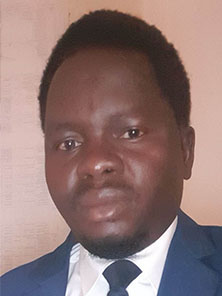By Gama Hassan Oscas
South Sudan, the youngest nation in the world, was born with the promise of a bright future, hope, and prosperity for its people. However, as the years have passed, this once hopeful nation has fallen prey to a devastating disease: corruption.
What was once considered a vile and criminal practice has now become a celebrated norm in South Sudan. Corruption has infiltrated every level of society, from the corridors of power to the humblest of households.
It is no longer a mere issue, but a deeply ingrained culture that threatens to engulf the nation in darkness. In this critical opinion piece, we will explore the reasons behind the alarming rise of corruption in South Sudan, its corrosive impact on society, and the urgent need for radical change to reverse this destructive course.
The Corrupt Celebrities and the Rise of the “Slay Kings”
In a shocking turn of events, corruption has elevated certain individuals to the status of “corrupt celebrities” in South Sudan. These are individuals who have amassed immense wealth through corrupt practices, flaunting their ill-gotten gains without fear of accountability. Instead of being condemned and brought to justice, these “celebrities” are hailed as symbols of success and influence.
Among the most alarming trends is the rise of the so-called “corrupt slay kings,” who bask in their corrupt endeavors, using their wealth to further exploit the system and fuel the culture of corruption. They are the epitome of impunity, siphoning public funds and engaging in fraudulent schemes while evading punishment.
Recycling of Corrupt Officials: A Mockery of Governance
One of the hallmarks of corruption in South Sudan is the recycling of corrupt officials. Instead of facing consequences for their misdeeds, corrupt officials are frequently fired from one position only to be reappointed or even promoted to other key government posts. This practice undermines the principles of accountability and transparency, perpetuating a vicious cycle of corruption.
Ministerial posts have become revolving doors for some individuals, who rotate through different ministries without any regard for competence or genuine commitment to serving the nation. As a result, the country is plagued by inefficiency, incompetence, and a lack of progress in critical sectors.
Nepotism and Tribalism: The Enemies of Meritocracy
Corruption in South Sudan is not limited to financial malpractices alone; it is deeply intertwined with nepotism and tribalism. Competent individuals with the potential to make a difference are sidelined in favor of less qualified candidates who have connections to those in power. This dangerous practice stifles progress, as meritocracy is replaced by cronyism.
Incompetence and empty headedness are rewarded in key government positions if they belong to the right tribe or family, while more qualified individuals are left on the fringes. This has serious repercussions for governance, public services, and national development.
Impunity and the Destruction of Justice
The culture of corruption in South Sudan has created an atmosphere of impunity, where wrongdoers are shielded from facing justice while those who dare to expose corruption or obstruct corrupt practices are penalized and ostracized. This perversion of justice reinforces the belief that corruption is not only acceptable but also profitable.
The very institutions tasked with combating corruption, like the anti-corruption agencies, have also succumbed to the corrupting influence. When the gatekeepers of justice themselves become corrupt, where can the ordinary citizens turn for redress?
The Collapse of Governance and the Plight of the Citizens
As corruption continues to deepen its roots in South Sudan, the nation’s governance and public services have crumbled. Essential services are no longer accessible without bribery. Securing contracts requires exorbitant kickbacks, leaving honest businesses at a disadvantage.
The “scratch my back, and I scratch yours” culture has created a perverse cycle, wherein both bribe-givers and bribe-takers perpetuate corruption for self-preservation. The very fabric of society is unraveling, and citizens are caught in a web of corruption from which there seems to be no escape.
The Alarming Prospects for the Future
Without a swift and determined effort to combat corruption, South Sudan faces a bleak and uncertain future. The insidious nature of corruption has infiltrated the country’s bloodstream, infecting every aspect of society. The once-promising nation now stands on the precipice of total destruction, its potential squandered by the insatiable greed of a few.
The Imperative for Change
The pervasive corruption in South Sudan is not an isolated issue; it is a cancer that threatens to consume the nation from within. The unholy celebration of corruption, the elevation of corrupt celebrities, and the dismissal of those who dare to obstruct corrupt practices all contribute to the erosion of South Sudan’s foundation.
To reverse the devastating course of corruption, a multi-faceted approach is needed. The fight against corruption must begin with an unwavering commitment from the nation’s leadership, judiciary, civil society, and ordinary citizens. Measures such as transparency in government transactions, independent oversight bodies, and protection for whistleblowers are crucial to combat corruption.
Investing in education and merit-based recruitment will help break the cycle of nepotism and tribalism, ensuring that qualified individuals can contribute to the nation’s progress. Additionally, the judiciary must be fortified to hold the corrupt accountable, regardless of their status or connections.
The international community also has a role to play in supporting South Sudan’s efforts to combat corruption. Through aid conditionality and diplomatic pressure, foreign nations can send a clear message that corruption will not be tolerated.
Ultimately, South Sudan’s future hinges on its ability to rid itself of corruption and embrace a new era of transparency, accountability, and good governance. The path ahead may be arduous, but it is not insurmountable. The fate of South Sudan rests in the hands of its people and their collective determination to reclaim their nation from the clutches of corruption. Only then can the dreams of a prosperous and just nation be realized.
The author of this article is an advocate and can be reached on email: oscarsgama@gmail.com




